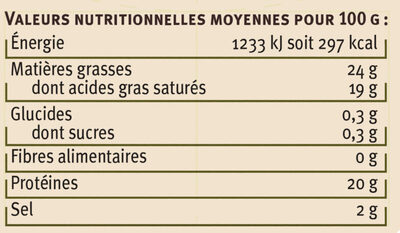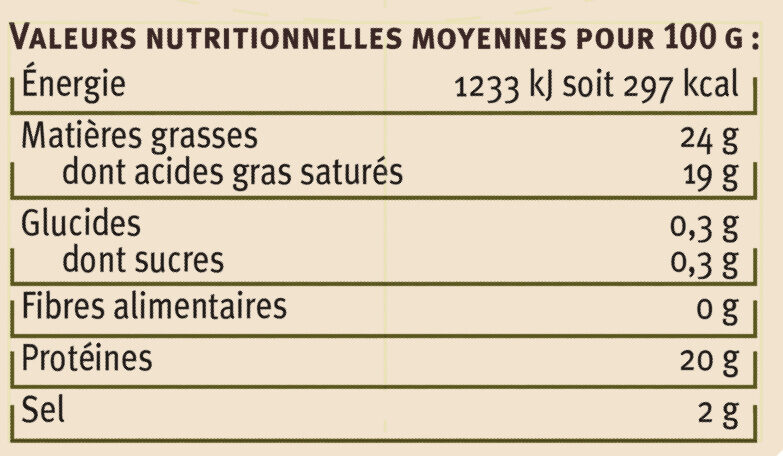Petit munster AOP au lait pasteurisé 24% de matière grasse - U Saveurs - 220 g
Some of the data for this product has been provided directly by the manufacturer Système U.
Barcode: 3368959008391 (EAN / EAN-13)
Common name: Munster
Quantity: 220 g
Packaging: Fresh, fr:Papier plastifié
Categories: Dairies, Fermented foods, Fermented milk products, Cheeses, Soft cheeses, Cow cheeses, Soft cheeses with bloomy rind, French cheeses, Pasteurized cheeses, Soft cheese with a natural rind, Soft cheeses with washed rind, Munster, Pasteurised milk Munsters, fr:Petits Munsters
Labels, certifications, awards:
French milk, Made in France, PDO
Origin of ingredients: France, fr:Hautes Vosges
Manufacturing or processing places: Alsace, France
Traceability code: FR 16.817.5004 CE
Stores: Super U, Magasins U
Countries where sold: France
Matching with your preferences
Report a problem
Data sources
Product added on by cestki13
Last edit of product page on by packbot.
Product page also edited by assatadiet, bonifacefr, eg, kiliweb, moon-rabbit, openfoodfacts-contributors, org-systeme-u, systeme-u, systeme-u-off, tulipe, yuka.WW80RlRJazcrYUVVb3ZjZDlFL3cyUEY1dzgrWERHV3VEL2NSSWc9PQ.












